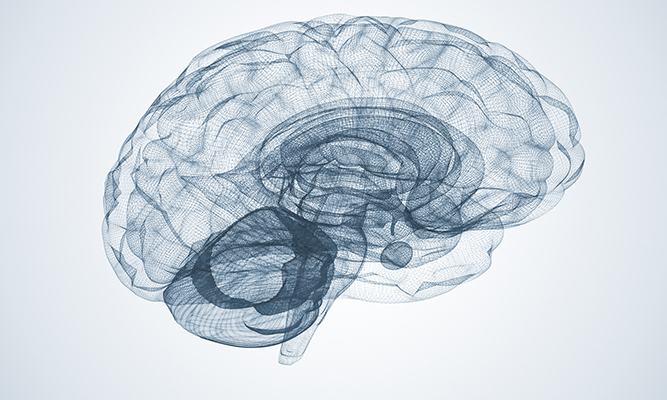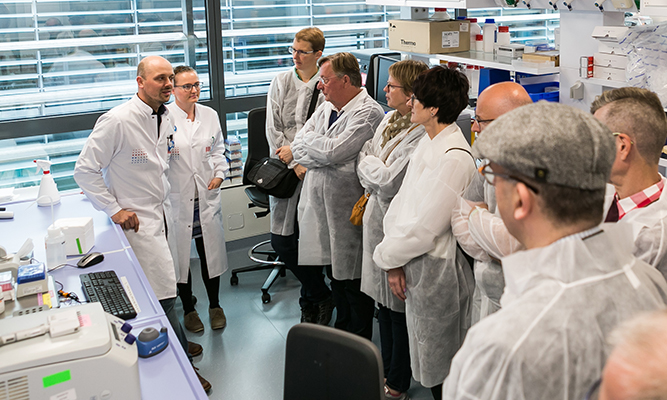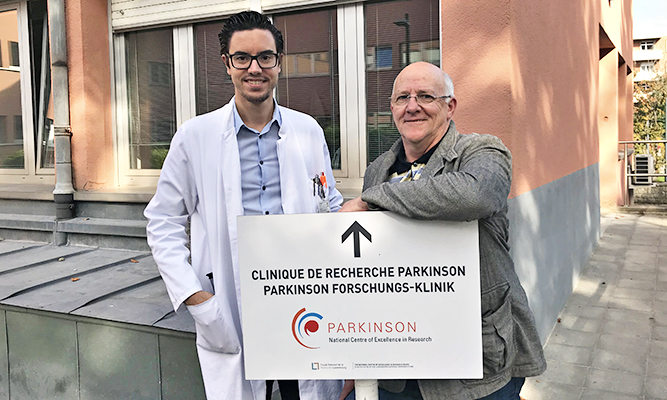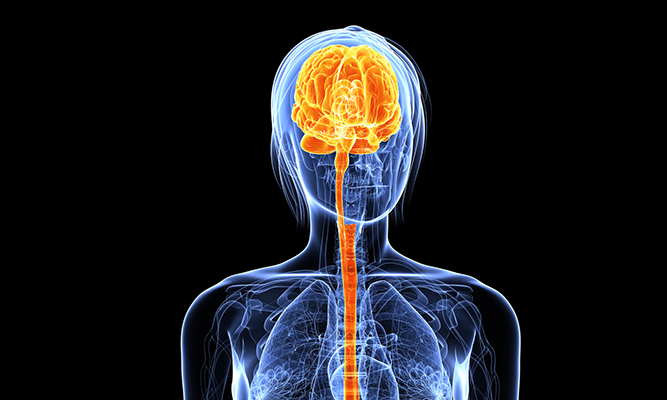As an alternative to the participation in the Parkinson's Research Clinic in Luxembourg, you also have the possibility to be examined by our Flying Team! Recently, the team achieved a new milestone: the 100th participant recruited through the Flying Team!
Parkinson’s disease (PD) is a neurodegenerative disease characterised by different stages, which are frequently established by the age of onset.
Patient engagement in the clinical research of the Luxembourg Parkinson’s Study (NCER-PD) is of vital importance for its success.
Last week, the clinical team of the Luxembourg Parkinson’s Study reached a new milestone. For the first time in Luxembourg, cerebral spinal fluid (CSF), the fluid that surrounds the brain and spinal cord, has been collected for research purposes.
Parkinson’s disease is an insidious disease: by the time it manifests as the typical motor dysfunctions such as tremors or muscle rigidity, portions of the brain have already been irreversibly destroyed. By this stage, the disease will have often begun already decades earlier.









